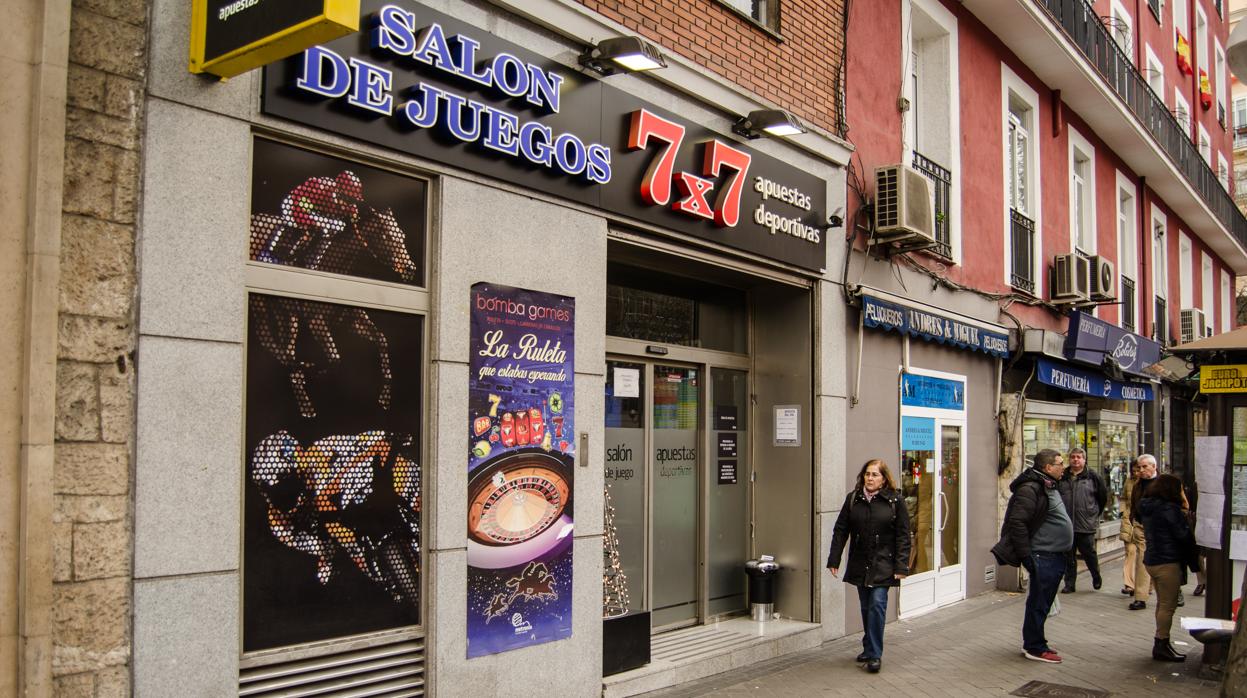Spanish Gaming Trade Group Head Says Industry is Being Decimated
Posted on: October 27, 2022, 10:27h.
Last updated on: October 27, 2022, 10:49h.
The Spanish Association of Entrepreneurs of Game and Recreational Halls (ANESAR, for its Spanish acronym) just wrapped its latest meeting. One of the main takeaways, according to its president, is that Spain’s land-based gaming segment – outside of casinos – is on course for continued decimation.

José Vall says restrictions imposed by the COVID-19 pandemic have led to the closure of gambling establishments in recent years. Exacerbating the situation are recent regulations and the general rise in costs of certain services, such as the 150% increase in electricity, and a similar spike in fuel costs.
ANESAR expressed concern over this situation last month. Vall wrote an op-ed in which he expressed his concern about the business uncertainty that marks the future of the sector. All of the issues have impacted the turnover of gambling halls, which currently stands 18% below pre-pandemic levels.
More Decreases Coming
Vall says the increased costs of doing business are taking a growing piece of the companies’ revenue. Gaming businesses must tap into large investments to adapt their premises to regulatory changes, which ultimately hurts their customers. Vall called the situation “disastrous,” adding that companies are now in their third year of suffering.
ANESAR stressed that Spain’s Autonomous Communities are paying the price. In the Balearic Islands, for example, almost 40 gambling halls and bookmakers have closed their doors since 2019. In Navarra, consumers spent €120 million (US$120.44 million) less last year than they did in 2019.
Additionally, the group reported that Valencia has seen a drop in activity of more than 23%. Lastly, the number of active gaming machines in Madrid is 25% lower than it was three years ago. This coincides with the closure of around 15% of the community’s licensed gaming facilities.
The losses obviously mean a drop in revenue, but that’s not the only reason ANESAR is upset. The changes in the industry also lead to the loss of jobs for thousands of Spaniards.
The group specifically highlighted government reforms across the country and how they impact the industry. ANESAR stated that these disproportionately target the gaming sector “under the pretext of protecting vulnerable groups.”
Major Reforms Coming to Spanish Gaming
ANESAR’s comments were likely a direct dig at some of the discussions currently going on in Congress. A reform project started at the beginning of the year, and in March, made an appearance before the Health and Consumer Affairs Commission in the Congress of Deputies.
That chamber advanced the legislation and sent it to the Senate. Last week, the Health and Consumer Affairs Committee of the Senate approved the bill. But not before making a number of changes.
Notably, the legislation seeks to reformulate Spain’s gambling law to expand the protection of users and the prevention of addictive behaviors. It will also add more control over the manipulation of sports competitions and fraud in betting.
The measure is now back in the Congress of Deputies, which will discuss the Senate’s recommendations. More changes to the bill are likely, especially considering Spain’s Minister of Consumer Affairs, Alberto Garzón, seems to be singularly focused on responsible gambling.
Related News Articles
Gambling Revenue Expected to be Substantial Part of Spain’s Budget in 2023
Spanish Police Arrest Three for Scamming Casino on World’s Largest Cruise Ship
Spain’s Balearic Islands Make Sweeping Changes to its Gambling Market
Most Popular
LOST VEGAS: ‘Tony The Ant’ Spilotro’s Circus Circus Gift Shop
Las Vegas Overstated F1 Race’s Vegas Impact — Report
Mega Millions Reportedly Mulling Substantial Ticket Price Increase
Las Vegas Strip Stabbing Near The Strat Leaves One Man Dead
Most Commented
-
End of the Line for Las Vegas Monorail
— April 5, 2024 — 90 Comments -
Mega Millions Reportedly Mulling Substantial Ticket Price Increase
— April 16, 2024 — 6 Comments -
Long Island Casino Opponents Love New York Licensing Delays
— March 27, 2024 — 5 Comments -
VEGAS MYTHS RE-BUSTED: You Can Buy Legal Weed On the Strip
— March 22, 2024 — 4 Comments
















No comments yet